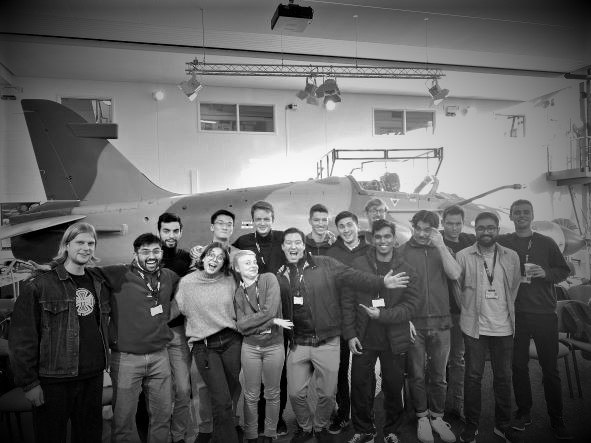The EPSRC Centre for Future Propulsion and Power is a collaborative venture between the Universities of Loughborough, Cambridge and Oxford and industrial partners Rolls-Royce, Siemens, Mitsubishi Heavy Industries and Dyson.
The fourth intake of students enrolled on the EPSRC Centre for Doctoral Training (CDT) in Future Propulsion and Power have just completed a three week mini-project at Loughborough University.
Mini-projects are an integral part of the CDT designed to provide the students with a wide variety of training in preparation for their PhD studies. The 17 students spent time learning about the research undertaken in the National Centre for Combustion & Aerothermal Technology (NCCAT), and gained some valuable hands-on experience of the experimental and numerical techniques used.
The first week involved a mix of seminars on combustion aerothermal processes, fuel injector flows and the complex interactions with the compressor and turbine. The students were also given extensive tours of NCCAT’s experimental facilities and given the chance to review some of the research papers produced at Loughborough's UTC.
Experimental week - students were given the opportunity to see and use some state-of-the-art aerodynamic test facilities and analyse real research data. They were tasked with conducting a fundamental experimental study of of fuel injectors which gave them experience of a selection of instrumentation such as fast response Cobra probes, hot-wire anemometry, Particle Image Velocimetry (PIV), Laser Doppler Anemometry (LDA) and aero-acoustics.
Technical Computing week - students were given the chance to develop some technical computing skills and gain experience of typical programming languages such as Fortran, C and C++. During this week they constructed their own computing ‘cluster’ and installed an operating system such that it could be used for parallel computing. The week ended with the students parallelising code originally written to work on a single processor. The groups were able to demonstrate significant speed-ups with run times up to 10X faster when using their parallel clusters.
